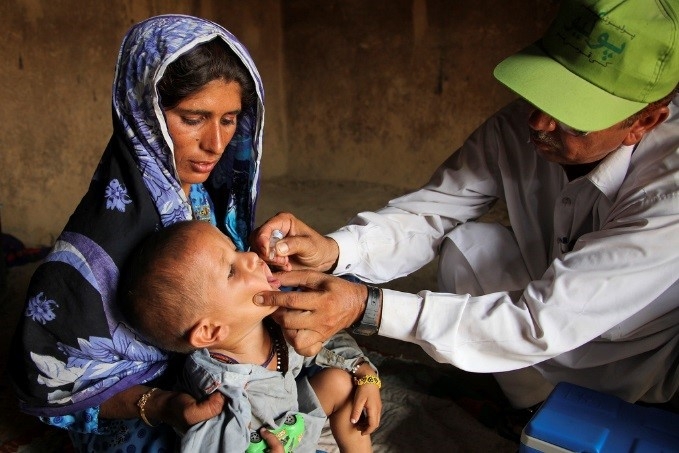Pakistan sees 98% reduction in Polio thanks to UAE

Between 2014 and the end of September 2018, the UAE-Pakistan Assistance Program administered 346,803,020 million doses of polio vaccines to more than 57 million children in Pakistan. The programme management stated that the UAE vaccination campaign is supported by Sheikh Mohamed bin Zayed whose initiative is to eliminate polio worldwide and prevent further health epidemics. The UAE is committed to helping the poor and needy gain access to preventative health care, especially at-risk children in various countries around the world.
Director of the UAE-Pakistan Assistance Programme, Abdullah Al-Ghafli commented:
“The campaign covered high-risk areas which include 25 districts in the Khyber region of Pakhtunkhwa, 33 districts in the Baluchistan Province, and 12 districts in Sindh Province.”
Poliomyelitis mainly affects children under the age of five, while one in 200 people are paralysed after contracting the disease. Statistics show that between 5-10% of individuals with paralysis die as a result of failed respiratory infection. However, Sheik Mohamed bin Zayed Al Nahyan has donated US $167 million since 2011 and supports global efforts to eradicate polio, primarily in Afghanistan and Pakistan. His contributions are in partnership with international institutions and organisations concerned with reducing the polio disease in the targeted countries of Afghanistan and Pakistan.
There has been a reduction rate of 98% in the number of reported polio cases since the campaign began. In 2018, there have only been four reported cases of polio in Pakistan, which indicate that the UN is closer to eliminating the disease in the near future.
The AIDF Global Summit will return to Washington D.C, in 2019.
If you’d like to stay informed on the latest updates in aid and development, please sign up for the AIDF newsletter.
Image credit: UNICEF











